 (source)
(source)
|
Ernest Henry Starling
(17 Apr 1866 - 2 May 1927)
English physiologist who coined the term hormone for the body’s chemical messengers and made prolific contributions to a modern understanding of body functions.
|
Science Quotes by Ernest Henry Starling (4 quotes)
In physiology, as in all other sciences, no discovery is useless, no curiosity misplaced or too ambitious, and we may be certain that every advance achieved in the quest of pure knowledge will sooner or later play its part in the service of man.
— Ernest Henry Starling
The Linacre Lecture on the Law of the Heart (1918), 147.
Only by following out the injunction of our great predecessor [William Harvey] to search out and study the secrets of Nature by way of experiment, can we hope to attain to a comprehension of 'the wisdom of the body and the understanding of the heart,' and thereby to the mastery of disease and pain, which will enable us to relieve the burden of mankind.
— Ernest Henry Starling
'The Wisdom of the Body', The Lancet (1923), 205, 870.
The law of the heart is thus the same as the law of muscular tissue generally, that the energy of contraction, however measured, is a function of the length of the muscle fibre.
— Ernest Henry Starling
The Linacre Lecture on the Law of the Heart (1918), 142.
The specific character of the greater part of the toxins which are known to us (I need only instance such toxins as those of tetanus and diphtheria) would suggest that the substances produced for effecting the correlation of organs within the body, through the intermediation of the blood stream, might also belong to this class, since here also specificity of action must be a distinguishing characteristic. These chemical messengers, however, or 'hormones' (from όρμάω, I excite or arouse), as we might call them, have to be carried from the organ where they are produced to the organ which they affect by means of the blood stream and the continually recurring physiological needs of the organism must determine their repeated production and circulation through the body.
— Ernest Henry Starling
'The Chemical Correlation of the Functions of the Body', The Lancet (1905), ii, 340.
See also:
- 17 Apr - short biography, births, deaths and events on date of Starling's birth.
- Principles of Human Physiology, by Ernest Henry Starling. - book suggestion.
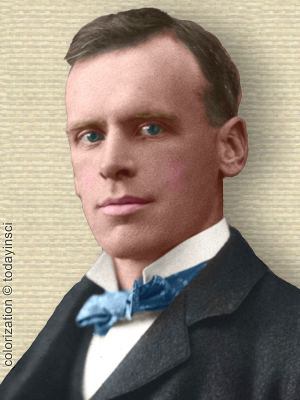
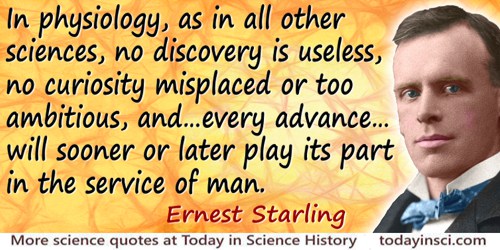
![Ernest Henry Starling quote: Only by following out the injunction of our great predecessor [William Harvey] to search out and st](https://todayinsci.com/S/Starling_Ernest/StarlingErnest-Mastery500x250px.jpg)
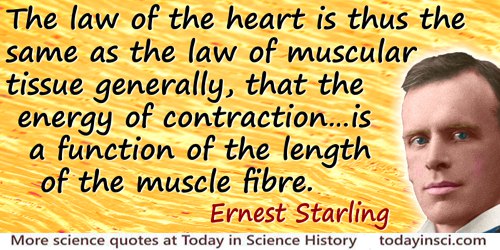
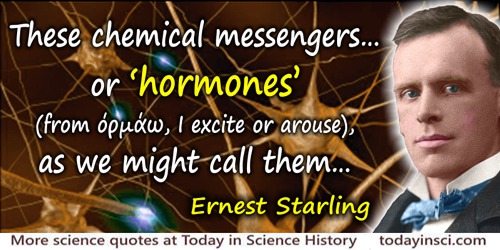
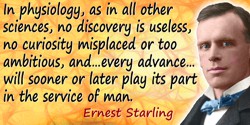

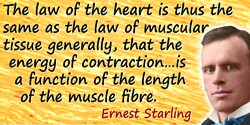
 In science it often happens that scientists say, 'You know that's a really good argument; my position is mistaken,' and then they would actually change their minds and you never hear that old view from them again. They really do it. It doesn't happen as often as it should, because scientists are human and change is sometimes painful. But it happens every day. I cannot recall the last time something like that happened in politics or religion.
(1987) --
In science it often happens that scientists say, 'You know that's a really good argument; my position is mistaken,' and then they would actually change their minds and you never hear that old view from them again. They really do it. It doesn't happen as often as it should, because scientists are human and change is sometimes painful. But it happens every day. I cannot recall the last time something like that happened in politics or religion.
(1987) -- 


